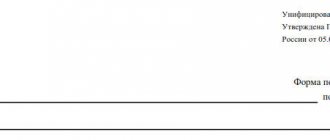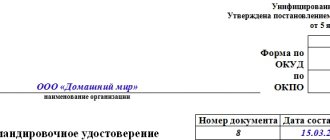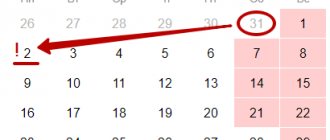Business life in Russia » Work » What will be the travel expenses in 2021
It is known what standards of payment per day during a business trip are used in 2021. But what will travel expenses be like in 2021?
, remains a question for now and, most likely, clarification will come closer to the end of the year. In the meantime, you can price the current amounts without looking ahead. You can answer the reader’s question using the text of the article.
The daily allowances in 2017 for Russia and the regions are the same. At the same time, according to the rules of the Tax Code, there is no rationing of travel expenses for the payment of daily allowances in 2021. The amount of the daily budget for business trips in 2021, as in the current annual period, is determined by the company management or individual entrepreneur. This applies to both domestic trips, as well as interregional and foreign ones. You just need to remember that in case of excessive calculations of travel allowances, interest on insurance premiums and personal income tax on daily allowances in 2021 must be collected subject to certain rules. And whatever the expenses, they are taken into account within the expense column of the simplified tax system. Taxation does not apply to travel expenses. However, it remains mandatory to pay contributions to compulsory pension, medical and social (in case of temporary disability, maternity) types of insurance. Contributions are made separately for insurance against accidents and occupational diseases. And the amount due for daily allowance must be approved as part of the company’s local acts. If expenses exceed it, personal income tax deductions are still not made. However, if the organization is state-owned, then there are still restrictions. The daily allowance is 100 rubles per person, in addition to transport tickets and accommodation. If the organization belongs to the system of federal executive authorities or military personnel, then the daily amount of travel expenses for the 2021 annual period, as in the current one, changes. It can vary from 150 to 300 rubles. Moreover, these prices have been maintained since 2015 and have not yet been revised. To determine the number of days, marks are made on arrival and departure as part of the travel certificate. For a one-day trip, travel allowances are not provided. And for a trip abroad, the accruals are half the amount provided for by the regulatory document. In the event of a possible return to the place of residence, the payment of daily allowances is not made.
Business trip abroad: registration
The package of documents for foreign business trips does not differ from those compiled for trips within the country.
To send an employee on a business trip, the following documents are drawn up:
- A memo addressed to the manager with a request to send the employee on a trip, indicating the place and time. This is not a mandatory document; in some organizations, the decision on a business trip can be made by verbal order of the manager. Compiled in free form.
- An order to be sent on a business trip is issued in a unified form T-9 or T-9a. The order does not make a note that this is a business trip abroad, this is already understandable, since the order form provides a deadline for indicating exactly where the employee is going.
- Advance report - prepared after the employee returns from the trip.
Note! At the moment, a travel certificate and official assignment are not mandatory documents when sent on a business trip.
Overseas business trip and payments
If a business trip involves crossing the border, then in addition to the main expenses for travel, food and accommodation, additional expenses may be added: for obtaining a foreign passport, visa and other documents. Also, at the request of the boss, the employee can be provided with insurance. All fees associated with currency exchange and baggage transportation must be taken into account and paid by management.
The list of travel allowances may include expenses for telephone calls or for using the Internet. Reimbursement of funds to the employee occurs in the currency of the country where he traveled or in rubles.
Daily allowances for business trips abroad for state employees
The amount of daily allowance for public sector employees is determined by Decree of the Government of the Russian Federation No. 812 of December 26, 2005, Appendix 1. In this document, a certain amount is established for each country, expressed in dollar equivalent. For example, the daily allowance in Kazakhstan is 55 US$.
Below are a few more examples of what daily allowances are for foreign business trips in 2021.
Table
| No. | The name of the country | Daily allowance, $ |
| 1. | Abkhazia | 54 |
| 2. | Republic of Belarus | 57 |
| 3. | Georgia | 54 |
| 4. | Latvia | 55 |
| 5. | Moldova | 53 |
| 6. | Tajikistan | 60 |
| 7. | USA | 72 |
| 8. | Germany | 65 |
| 9. | Great Britain | 69 |
The above amounts apply to all employees of budgetary and government organizations.
What documents confirm daily payments?
In 2015, the procedure for compulsory preparation of a travel certificate was abolished in Russia. How are travel expenses recorded in 2021?
- First, many companies continue to use the travel permit on a voluntary basis;
- Secondly, expenses incurred on a business trip can be confirmed by checks and receipts from the hotel, apartment rental agreement, travel tickets, etc.
- Thirdly, the basis for payment of travel expenses in 2017 may be a memo.
The latter contains information about the dates of departure and return, as well as the arrival mark, which is placed by the receiving party (Government Decree No. 771). Russian labor legislation does not provide for a unified sample of an official memo - this document is drawn up in any form.
Business trip abroad: daily allowance 2021 for private enterprises
All enterprises that are not budget-funded are allowed to set their own rates of payment for daily expenses when employees travel outside the country.
This value can be set:
- Collective agreement;
- Accounting policy;
- Another local regulatory document of the company.
The amount of payment may vary depending on the circumstances:
- Destinations;
- Duration of the trip;
- Purposes of the trip;
- Positions of the seconded person, etc.
Enterprises can use the amounts established for public sector employees as a basis.
Legal regulation of business trips
The interaction between a manager and an employee is regulated by labor legislation. The possibility of traveling outside of permanent residence is discussed during employment. When applying for a job, a specialist agrees to go on a business trip in the interests of the service. It is customary to consider a business trip when an employee travels for several days to another locality by order of a manager with a specific task. Women expecting the birth of a child, single mothers, and persons under the age of majority are not sent outside the enterprise, organization, or institution where they are officially employed. Employees raising small children and disabled people have the right to refuse work trips (Article 259, Article 264 of the Labor Code of the Russian Federation).
Refusal to travel for an employee who is caring for sick relatives will not be considered a violation of labor discipline (Article 259, Article 264 of the Labor Code of the Russian Federation). The employee agrees in writing to go on a business trip for a holiday or rest day (Article 113 of the Labor Code of the Russian Federation).
Per diem abroad 2021: calculation nuances
When paying daily allowance to a posted worker, the following nuances must be taken into account:
- the date of crossing the border when traveling to your destination is counted as a business trip abroad.
- The date of crossing the border upon return is taken into account as a regular business trip.
- Daily allowances abroad in 2021 are tax-free only if they do not exceed 2,500 rubles. If their size is larger, then everything above the specified amount is subject to taxation.
- despite the fact that the amounts are indicated in dollars, they can also be paid to the employee in ruble equivalent.
- The exchange rate is taken in the amount established on the last day of the month in which the employee submitted the advance report.
These nuances are important to consider for the correct taxation procedure for an organization and a business traveler.
For example, a business traveler travels by train from Moscow to Helsinki. Departure at 19.15 on October 10 from Moscow and arrival in Helsinki on October 11 at 15.30. Crossing the border at 03.15. Payment will be made for October 10 - 700 rubles, for October 11 - 2500 rubles.
Rules and procedure for issuing daily allowances in 2021
As a general rule, daily allowances are issued to the employee in full before his departure on a business trip. The basis is the number of days for which the employer sends him on a trip. It is considered based on the business trip order.
Procedure for calculating daily allowance in 2021
The algorithm for calculating daily allowance is simple: the number of days that an employee must spend on a business trip according to the order is multiplied by the amount of daily allowance provided for by the relevant local act.
For example, if he is sent on a business trip for seven days, and the daily allowance is the maximum by law of 700 rubles, we get 7x700=4900.
But here the question arises - how to count the days an employee is on a business trip and whether to pay daily allowances for the days of departure and arrival. After all, an employee could go on a business trip late in the evening and return early in the morning. So it is often unclear what to do with payment for these days. However, the legislation on this issue takes a clear position - the days of departure and arrival, even in such a situation, are still considered spent on a business trip, and daily allowances must be paid for them.
A special story is if the arrival and or departure occurred at night. In this case, the calendar day serves as a rubicon. For example, an employee went on a business trip by train (plane, bus, ship or other vehicle, including his own car), which left at night. If departure occurs before 0:00, the day of departure is considered the previous day. If it’s later, it’s the next one.
For example, an employee went on a business trip by train, departing from the starting point on the night of January 10 at 23:59, and upon returning, his train arrived at his destination exactly at midnight on the night of January 12. In this case, although the employee was on the way to the destination of his business trip for actually two days - January 10 and 11, he is entitled to a daily allowance for four days, since the day of departure will be considered January 9, and the day of arrival - 10. This means that if we count the daily allowance According to the maximum limit for business trips within the country of 700 rubles per day, he is owed 4x700 = 2800 rubles per day.
The situation is also worthy of mention when the point of departure of the vehicle in which the employee departed on a business trip is located outside the boundaries of the populated area from which the employee was sent. For example, the office of his company is located in Moscow, and the employee left for a business trip on a plane that took off on the night of January 11 after zero hours. However, to get to the airport, the employee had to take the Aeroexpress, which departed from the capital, say, at 23:00. The start date of the business trip in this case will be January 10 - the date of departure of the Aeroexpress. The situation is similar if the employee arrived from a business trip on January 15 at 23:00, and the Aeroexpress, which he then took to Moscow, arrived at the capital’s station after midnight on January 16. January 16 will be considered the day of arrival, and the employee is entitled to daily allowance for this day.
If the plane on which the employee flew on a business trip departed after midnight, and the airport is located outside the city limits, the day of departure is considered to be the date of departure of the vehicle on which the employee traveled to the airport
Daily allowances are also paid for the time the employee spends on the road. For example, an employer sent an employee from Moscow to Novosibirsk. The employee stayed directly in the city for three days, and it took him another two days in each direction to travel. The total is seven days, which means that this period is the basis for calculating the amount of daily allowance: 7x700=4900. If the company’s daily allowance is, for example, 500 rubles, we calculate accordingly: 7x500 = 3500 rubles.
Let's consider a completely exotic example. An employee goes on a business trip from Moscow to Vladivostok, the daily allowance is 700 rubles. He must spend two weeks in Vladivostok. If you send him by train, he will spend the same amount of time on the road (the train from Moscow to Vladivostok takes seven days). In total, it turns out that we will have to pay this employee daily allowance for 28 days: 28x700 = 19,600 rubles. You can’t help but wonder if it would be more profitable to pay for the plane for him. After all, it turns out that half of these 28 days he will be toiling around foolishly on the road, which will be of no benefit to either him or the company. And we pay him not only daily allowance, but also a salary for all the days spent on the trip. Not to mention the fact that a plane ticket from Moscow to Vladivostok is comparable, if not cheaper, than a compartment ticket for a train.
When traveling abroad, the same algorithm is used, but the daily allowance for trips abroad approved by local regulations is used. The only caveat is that if the employee spent part of the travel time in Russia, during this time he is paid a daily allowance in the amount approved for business trips within the country.
For example, an employee was sent to Warsaw and spent a week on a business trip. He traveled there and back by train, which crossed the border of the Russian Federation with the Republic of Belarus on the way there the next day after departure, and on the way back on the day of arrival.
The daily allowance is 700 rubles per day for business trips within the country and 2.5 thousand for foreign ones.
It turns out that for the days of departure and arrival he is paid daily allowance as for a business trip in Russia, and for the remaining five days - according to the foreign norm:
- 2x700=1400;
- 5x2500=12500;
- 1400=12500=13900.
In total, we must pay 13,900 rubles per diem.
How many days before a business trip are daily allowances issued?
The current legislation in 2021 does not provide for any strict regulations regarding this period (say, no more than three days before the expected departure date). The law has only one requirement - the entire amount of expected travel expenses, including daily allowances, must be paid to the employee before departure, including directly on the day of departure.
There are, of course, exceptions. For example, a decision on an urgent business trip had to be made on Saturday, and the employee left on the same day. There is no opportunity to pay him an advance, say by transfer to a card, before Monday, and nothing can be done. Formally, this is a violation, but in practice everything is decided at the level of mutual agreements between the employer and the employee, and for the latter, the very fact of reimbursement of expenses, at least after the fact, is of key importance.
Other nuances remain at the discretion of the employer. And he may provide additional restrictions. For example, state in the Regulations on Business Travel or by a separate order that the employee is obliged to return the advance payment received to the cashier if he does not go on a business trip within, say, three days, a week or any other period that the employer is free to determine.
Is daily allowance paid for a one-day business trip?
No, they are not paid. The key feature of this item of travel expenses is the fact that the posted worker lives outside his permanent place of residence. In practice, accommodation means that during a business trip an employee must spend at least one night in a train, hotel, private apartment, etc.
If an employee returns from a business trip on the day of departure, this condition is considered unfulfilled and daily allowance is not due.
The Lastochka electric train allows you to limit yourself to one-day business trips from Moscow to cities such as Tula, Orel, Kursk, Vladimir, Nizhny Novgorod
For example, a company sent an employee from Moscow to Orel. Let's say he left the capital early in the morning of January 11 by express (several daytime high-speed trains and the Lastochka electric train run between Moscow and Orel). He arrived there at lunchtime, completed all his work in a few hours and managed to return to the capital on a high-speed train, which managed to arrive at the Kursky station in Moscow before 23:59 on the same day; he was not paid a daily allowance. But if he left Moscow on the evening of January 11 by a night fast train, spent the whole day on January 12 in Orel, and returned to the capital by night train, arriving at his destination on the morning of January 13, it is considered that he spent three days on a business trip and should receive daily allowance for this entire time. The same situation exists, for example, with St. Petersburg. After all, you can get there and back from Moscow in one day on a Sapsan or an airplane - the traffic schedule allows it.
How are daily allowances paid for weekends?
The issue of paying daily allowances for weekends spent on a business trip often causes confusion among employers who find themselves in such a situation for the first time. For example, an employee was sent on a business trip for a week (seven days), and it started on Wednesday.
After all, people don’t work on weekends by default, which means there’s nothing to pay for. However, it must be said right away that such an approach is considered a gross violation of the law.
The employer is obliged to pay the employee daily allowance for weekends spent on a business trip, even if he is sure that he was drinking on those days
And the point is not even that the employee could actually work on weekends.
On Friday evening, the editorial office of a federal weekly newspaper, published on Tuesday and delivered to the printing house on Monday, learned about a criminal story that the publication could not ignore. The only way out was to urgently send a correspondent to the region so that on Monday morning he would provide a finished report. The employee went on a business trip that same day and on Saturday morning raised the ears of all representatives of official structures involved in this story. As a result, he managed to get a meeting not only with the investigator, but also with the suspect who was in the temporary detention center. The report was prepared in a timely manner, and the newspaper issue was submitted to the printing house and published on time. It goes without saying that the question of what the journalist did on the weekend did not arise before anyone in the editorial office.
But even if on weekends or public holidays that occurred during a business trip, the employee was really idle, the employer is obliged to pay him per diem for these days.
Regulatory framework
- “Labor Code” of the Russian Federation (Articles: 166, 167, 168, 310).
- “Tax Code” of the Russian Federation (Articles: 217, 264, 422).
- Decree of the Government of the Russian Federation “On the peculiarities of referral to the UK” number 749, dated 10/13/2008.
- Decree of the Government of the Russian Federation “On Amendments to Certain Acts of the Government of the Russian Federation” No. 1595, dated December 29, 2014 regarding the amendment to the issue of the need to issue a special certificate for travel.
- Decree of the Government of the Russian Federation “on the specifics of the procedure for calculating the average salary” numbered 922, dated December 24, 2007.
Important! Based on Resolution No. 1595, from January 2015, the issuance of a special certificate confirming the date of arrival at the destination and, accordingly, departure from the destination. Since the beginning of January 2015, a similar confirmation is a ticket confirming travel on public transport (plane, bus, train), which indicates the date and time of arrival/arrival.
How long can a business trip last?
The question is interesting, especially since not a single legislative act mentions specific deadlines. That is, in fact, a business trip can last from one day to several months or even years. It's up to the management to decide. However, a business trip cannot last less than one day as recognized by the Supreme Arbitration Court of the Russian Federation. Here we are talking about non-taxation of payments in return for waste on one-day business trips.
In any case, in Moscow, St. Petersburg and other cities of the country, employers send their employees for one day, paying for everything necessary.
Stage 3: extension of the secondment period
The procedure for extending a business trip is as follows:
- the employee is notified of the extension of the business trip;
- issue an order;
- calculate daily allowances;
- pay the employee the amount necessary for the additional period.
It is necessary to obtain written consent from those employees who are sent on business trips with their written consent.
The employee is notified of the extension of the business trip by any available means.
Cost structure
Accounting transactions and reports on travel expenses are subject to the requirements of the Law; business trips in 2021 were not affected by changes in the structure of expenses. This still includes:
- earnings calculated on the basis of the average daily salary for the entire period of the official trip;
- payment for tickets for travel to the destination in the forward and return directions by air, railway, bus (except for taxi);
- compensation for expenses for the use of a subordinate’s own car when performing an official assignment as part of a business trip;
- hotel expenses (accommodation fees) or rental expenses;
- additional costs (this may include shoe repair, dry cleaning of clothes, purchase of goods and components for equipment, entertainment expenses).
Compensation for living expenses occurs in 2 ways:
- according to the documents provided - receipts, invoices;
- management allocates a clearly fixed amount established by the internal rules of the enterprise.
Also see “Regulations on business trips: what the 2017 model should be.”
Is it possible to extend or reschedule a business trip?
The legislation does not establish a ban on extending the duration of an existing business trip, or postponing a future one, for which all the necessary documents have already been completed. But at the same time, there are no clear instructions anywhere on how exactly this should be done.
If it is necessary to extend a business trip, the best way to do this is by issuing such an order. It is drawn up in any form (there is no standard form developed for such a case), and must contain the reason for the extension and the new completion date.
Also, corrections are made to all business trip documents - the incorrect date is crossed out with one line, and a new one is written on top.
And finally, the employer is obliged to calculate the daily allowance for the days of extension, as well as living expenses, and transfer this amount to the employee. The law prohibits obliging an employee to use personal available funds for these purposes, even if they are later reimbursed.
The rescheduling of a business trip must also be issued by an additional order in any form. It includes the reason for the postponement, as well as the new start and end dates of the trip. They must be included in all issued travel documents by crossing out the old value and indicating the new one.
Attention! There is no need to recalculate daily allowances and other payments if only the dates of departure and arrival change, and not the duration of the trip itself.
Business trip and workplace
An employee on a business trip retains his workplace. Business trip days are paid according to the average (Article 167 of the Labor Code). The algorithm for calculating average earnings is given in Regulation No. 213 and Article 139 of the Labor Code of the Russian Federation.
- Determine the day when the employee goes on a business trip and the day he returns.
- Calculate how many working days are required for a business trip.
- Take into account 12 months before the business trip. Calculate days worked and accrued wages. Do not include in average earnings days and amounts of wages calculated according to the average.
- Calculate average earnings per day.
- Calculate the average earnings for business trip days.
On practice:
- The employee was on a business trip from March 20 to March 29, 2017.
- The duration of the business trip is 8 working days according to the employee’s work schedule.
- The calculation period taken into account is 12 calendar months until March 2021. From March 1, 2021 until February 28, 2021, the employee worked 200 days. 400,000 rubles accrued.
- Average earnings per day is 2000 rubles. 400,000 rub. / 200 days = 2000 rub. in a day.
- Average earnings for 8 days of a business trip: 2000 rubles. per day X 8 days = 16,000 rub.
When calculating travel allowances, the employee will be accrued daily allowances for 10 days. Per diem is paid for weekends and/or holidays during a business trip.
Filling out a time sheet
In this document, the employer undertakes to indicate the working days worked by the employee during the business trip. Such days must be indicated in the timesheet, either with the code “K” or “06”.
It happens that an employee was forced to work on weekends or holidays. In this case, the document must be marked with the code “РВ” or “03”, if this has all been agreed upon with the authorities. If not, then management has the right not to note anything on the timesheet and not to pay for the hours worked by the employee on a day off.
Many people do not take into account, as working time, the time an employee spends on the road, for example, driving on a day off. Unfortunately, entrepreneurs really don't have to take this time into account. But in all fairness, of course, it is better to mark such time as “RV” or “03”.
Revocation from a business trip or its cancellation
The Labor Code does not provide clear instructions on actions to take when business trips are cancelled. Cancellation of a trip or recall ahead of schedule is carried out in several steps. Before issuing the order, the employee is notified of the extension of the business trip (or recall from it). Then an order is issued. Next, the employee is introduced to this order against signature; this can be done after returning to the workplace. If the money has already been issued, but the business trip is canceled or interrupted, the employee draws up an advance report and returns the previously issued and unspent funds.
Accounting entries
An example of postings is given in the table.
Table: Business trip postings
| Wiring | Amount, rub. | Posting Contents |
| Debit 71 Credit 50 | 39450 | an advance was issued for the report |
| Debit 44 Credit 71 | 26280 | expenses for business trips abroad without daily allowances |
| Debit 44 Credit 71 | 7500 | daily allowance according to the norms for a business trip for three days abroad |
| Debit 44–1 Credit 71 | 1900 | daily allowance above normal (9450–7500) |
| Debit 44 Credit 71 | 2100 | daily allowance in Russia |
| Debit 19 Credit 71 | 244 | VAT is allocated on train tickets |
| Debit 44 Credit 71 | 1356 | the cost of travel was expensed (1600–244) |
| Debit 68 subaccount “VAT calculations” Credit 19 | 244 | accepted for VAT deduction |
| Debit 50 Credit 71 | 20 | return of advance payment to the cashier |
| Debit 70 Credit 68 personal income tax subaccount | 253,5 | Personal income tax accrued on daily allowances in excess of the norm (9450–7500) x 13% |
| Debit 70 Credit 69–2 | 418 | contributions to the Pension Fund for daily allowances were accrued in excess of the norm |
| Debit 70 Credit 69–1 | 55,10 | social insurance contributions for daily allowances were calculated in excess of the norm |
| Debit 70 Credit 69–3 | 96,9 | Contributions for compulsory health insurance were assessed for daily allowances in excess of the norm |
Features of taxation of personal income tax and insurance contributions for business trip expenses are presented in the table.
Table: Taxation of personal income tax and insurance contributions for travel expenses for 2021
| Type of expenses | Personal income tax | Contributions to compulsory health insurance, compulsory health insurance and compulsory health insurance |
| Payment for accommodation (based on documents confirming expenses) | Do not tax | Do not tax |
| Payment for hotel services not directly related to accommodation (for example, service in a bar or restaurant) | Tax | Tax |
| Payment for travel to and from the business trip | Do not tax | Do not tax |
| Travel expenses to the airfield or train station at the places of departure, destination and transfers (including by taxi) | Do not tax | Do not tax |
| Baggage costs | Do not tax | Do not tax |
| Costs of exchanging one currency for another or a traveler's check for cash | Do not tax | Do not tax |
| Daily allowance within the limits established by clause 3 of Art. Art. 217 of the Tax Code of the Russian Federation (i.e. not exceeding 700 rubles for business trips to the Russian Federation and 2500 rubles for business trips abroad) | Do not tax | Do not tax |
| Daily allowances in excess of the norms established by clause 3 of Art. Art. 217 of the Tax Code of the Russian Federation (i.e., exceeding 700 rubles for business trips to the Russian Federation and 2500 rubles for business trips abroad) | Tax | Tax |
| Airport fees, insurance and commission fees | Do not tax | Do not tax |
Duration of business trips
The period of the business trip is determined by the head of the company independently, based on the production need that arises. It must be reflected in the issued travel order, and if a job assignment is being drawn up, then in this document too.
At the same time, due to the circumstances that have arisen, the duration of the trip may either be reduced or extended for a certain time. This also requires the issuance of a written order from the company’s management.
Previously, the current legal norms determined the maximum period of a business trip at 40 days, not counting the time spent on the journey. It was also stipulated that the business trip had to be more than one day.
But the new Government Decrees that came into force, in accordance with which business trips are currently regulated, canceled the validity of these regulations and did not introduce new deadlines. Therefore, today the minimum and maximum duration of a business trip is not fixed anywhere at the legislative level.
Attention! However, when setting the duration of the trip, it is necessary to proceed from the very concept of a business trip - a business trip does not mean the performance by an employee of his duties, whose work has been established as traveling, as well as the transfer of an employee to another location.





